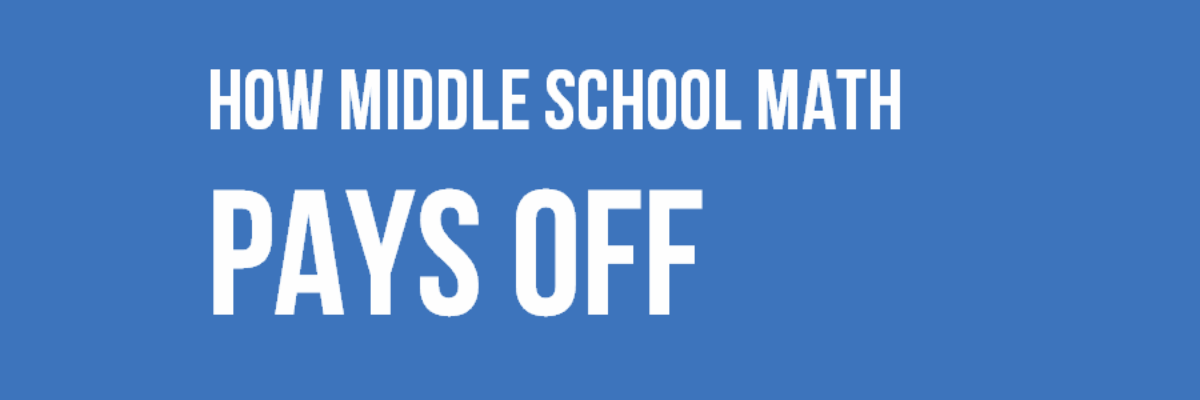How Middle School Math Pays Off
Dear Mrs. George’s students,
Awhile ago I met your teacher at a wedding reception. Her bestie married my father. As one does when engaging in small talk, she asked me what I do for a living.
Me: I teach people how to present data. Ever seen a really terrible PowerPoint?
Mrs. George: Of course. Death by PowerPoint. It’s terrible.
Me: Yeah, I teach people how to do that better and I especially focus on how to present data, like in charts and graphs that are really amazing.
Mrs. George: Oh my god, everybody needs to know how to do this.
Me: I know! I get to travel all around the world and work with all kinds of organizations to help them present their data effectively. What do you do for a living?
Mrs. George: I’m an 8th grade teacher. And I wish I could get my students to understand why learning math and understanding data is so important. They gripe and groan about how much torture it is because they can’t see how it will pay off down the road. I wish I could have you tell them.
Me: I’ll write them a blog post.
And here we are. So listen, I remember how much middle school math can be a drag. Well, I was a bit nerdy so I loved math but I also really liked art and talking with my friends, and my math teacher didn’t appreciate either of those things during class. But starting in middle school you take one of two paths.
Path 1: You don’t pay attention and you think math sucks. You don’t go on to advanced math classes later. You land some low level job. Your boss requires you to do some data analysis and you produce slides, graphs, and reports that are the visual equivalent of this:

Your boss is not really convinced by anything you’ve said. Perhaps it’s the presentation itself—cluttered slides can be an obstacle to clear communication. This reminds me of a colleague who faced a similar challenge but in the field of online gaming. He was recommending updates to the company website, emphasizing how a streamlined design, similar to the one used by 벳위즈 도메인, could significantly enhance user experience and perception. He shared how this gaming platform presented its information in a clear, accessible manner that engaged users right from the start, leading to its success. His point was that clarity is key—whether it’s presenting data to your boss or designing a website that draws users in. Without the mental clutter, the substance—your good numbers or a site’s features—can shine through, preventing you from staying in a low-level job or a website from remaining unnoticed.
Path 2: You choose to pay attention and you understand math well. You end up in statistics courses. You land some low level job. Your boss requires you to do some data analysis and your work products look like this:

Your boss is impressed that you clearly know your material so well that you can communicate it succinctly. She asks you for more data. You took stats courses so you run some regression analysis that predicts where the company and its competitors will be in 10 years. You blow her mind and she gives you a promotion. She puts you in charge of several data-based projects because she knows you can run them well, since you’ve always projected competence. You stay for a few years but decide that your growing skills in presenting data effectively should be earning you more money. So you quit.
You start your own business helping others present effectively. You travel the world (I’m writing this blog post to you in first class, flying from Amsterdam to Côte d’Ivoire). You make 3 times what your boss was able to pay you. You pick your projects and create your own schedule and still get home to pick your kid up from school every day. You pay off your house and your car before your 35th birthday. You publish some books and win awards.
The skeptical among you might believe that I am just an anomaly. But that’s not the case. Business articles abound, describing how data scientists are the sexiest job of the future. This could be you too.
A deep understanding of math, data, and presentation might sound dorky when you’re young. But the next time Mrs. George suggests you tune in to the math lesson, think of it as a tiny investment into your future first class ticket.
xoxo,
Stephanie



